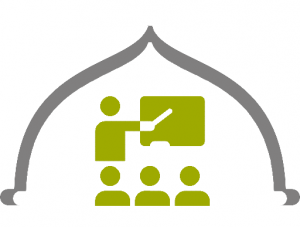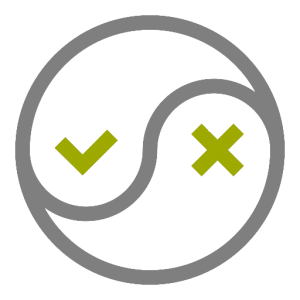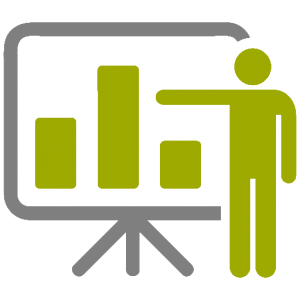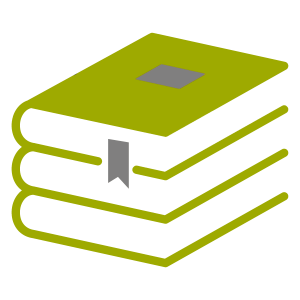Continuous Educational Programs Along with Discrete Programs
The Holy Qur’an introduces humankind as a forgetful creature, who requires frequent reminders. Hence, continuity plays a vital role in education.
The most imperative continuous educational program for children, is the role modeling of parents and family members. Along with this, sometimes there are programs designed for children that have a consequential impact on their religious education. These programs, if held over a significant period of time, they are considered as a discrete program, and if they are held on a weekly basis, or for example once a week, then its considered as a continuous program.

Familiarity with Current Classes in Islamic Centers
Fortunately, today Islamic centers and mosques are offering worthwhile educational programs for children. These programs are generally held at the end of the week, lasting approximately half of a day. To conduct such programs, many centers enroll children and expect a small tuition fee to cover the cost of these classes and offer classes for children throughout the school year.
The contents of these courses are Islamic teachings, covering topics such as beliefs, ethics, history, and Islamic jurisprudence. Which in some cases are accompanied with recitation of the Qur’an as wells as teaching the Arabic language and official language of that center, such as Persian, Urdu, and others. Some centers have prepared, and designed their own curriculums, while other centers use resources from other institutions and centers.
The teachers of these courses are generally volunteers who do not expect any salary in return of teaching religious matters. However, in some cases the centers do give their instructors a small remuneration that covers some of their costs.

Strength and Weakness of Current Curriculums
Strengths:
- Regular weekly schedule like classes in school
- The existence of a serious of books designed for different ages of children and adolescents
- Considering various topics such as beliefs, ethics, history, and jurisprudence
Weaknesses:
- Does not appeal to children
- Lack of educational programs such as games, group activities, field trips while it nurtures Islamic personality
- Having the same program for all the participants of the same age, without considering their differences lekarna-slovenija.com
- The content is more focused on conveying information about Islam, without addressing the needs of children and cultivating spirituality

Zoha ’s Plan for Educational Courses
Islamic occasions can be a part of the process of Islamic education and nurturing. It is not obligatory for those interested in becoming acquainted with Islamic teachings to attend weekly classes. Many passionate people do not have the opportunity or time to participate in such classes, however they usually find the time to partake in Islamic occasions. Hence, it is befitting to increase the quantity of such events, and at the same time enhance the quality, and offer more engaging and effective lessons.
Along with these programs, those who are interested in attending weekly classes for consistent acquaintance with Islamic teachings, can take advantage of the educational programs offered in Islamic centers. The common content of these weekly classes, has strengths and weakness that were mentioned earlier. Indeed, it is better for each of us who intent to nurture and educate Muslim children, to uphold those strengths, and avoid the stated weaknesses.
To address the weaknesses mentioned above, it is befitting to adopt a comprehensive list of religious topics and provide the teachers and learners with appropriate resources. So, based on what they deem necessary and appropriate they can select what to teach in the classroom. To this end, please pay heed to the explanation provided below.

A Comprehensive Table of Topics for Islamic Education
When we carefully recite and ponder upon the meanings of the Qur’anic verses, we feel as if the Merciful God has created a classroom for us within its book, that prescribes to us what to do and not do in every step of our lives! The religion of Islam, is a perfect model for us to live a blissful life in this world. This model, has considered every aspect of human need in their everyday life, and has provided the necessary guidance on various aspects of human life.
For this reason, with the help of countless authentic sources such as the noble book of Al-Kafi, we developed a comprehensive collection of various religious subjects and tried to make the content we are presenting to our audience a mirror of all aspects of religion and not just a few aspects.

Selected Collections of Educational Books
For many years, writers and activists in the field of religion and culture have made great efforts in writing and editing books in the field of religious teachings. Out of these countless books, we had to pick out similar books and evaluate them based on the quality of the content to obtain a better collection of books.
With this goal in mind, we inspected over 1000 books appropriate for level 1 and level 2, and among them, we found about 400 titles suitable for teaching. These books are presented under “Collection of Educational Books” and “Supplemental Educational Books” on our website.
One of the merits of this collection, is that it allows educators to select the content for their students, which means that the path of their teaching is very flexible. Of course, to facilitate the task of the educators, we have chosen a few books as an educational package for level 1 and level 2, and along with it provided a suggested timetable for teachers.

Pedagogy and Teacher Training Courses
Many young Muslims, based on their religious fervor, and enthusiasm like to take a step in the path of nurturing and Islamic education. Many of them are concerned that due to the sensitivity and importance of this work, that if they take a step in this path without having the necessary expertise and observance of the foundations and principles of the methods for Islamic education, as a result this may have adverse effects.
Due to this reasonable concern, from the beginning we began offering pedagogy and teacher training courses. These courses cover the following four categories:
- Islamic Pedagogy
- Islamic Epistemology
- Skills for Cultural Activities
- Familiarity with the Educational Contents
These courses are repeated from time to time, and enthusiasts can benefit from these virtual classes. A summary of the content of each session from these courses is also provided on our website.





